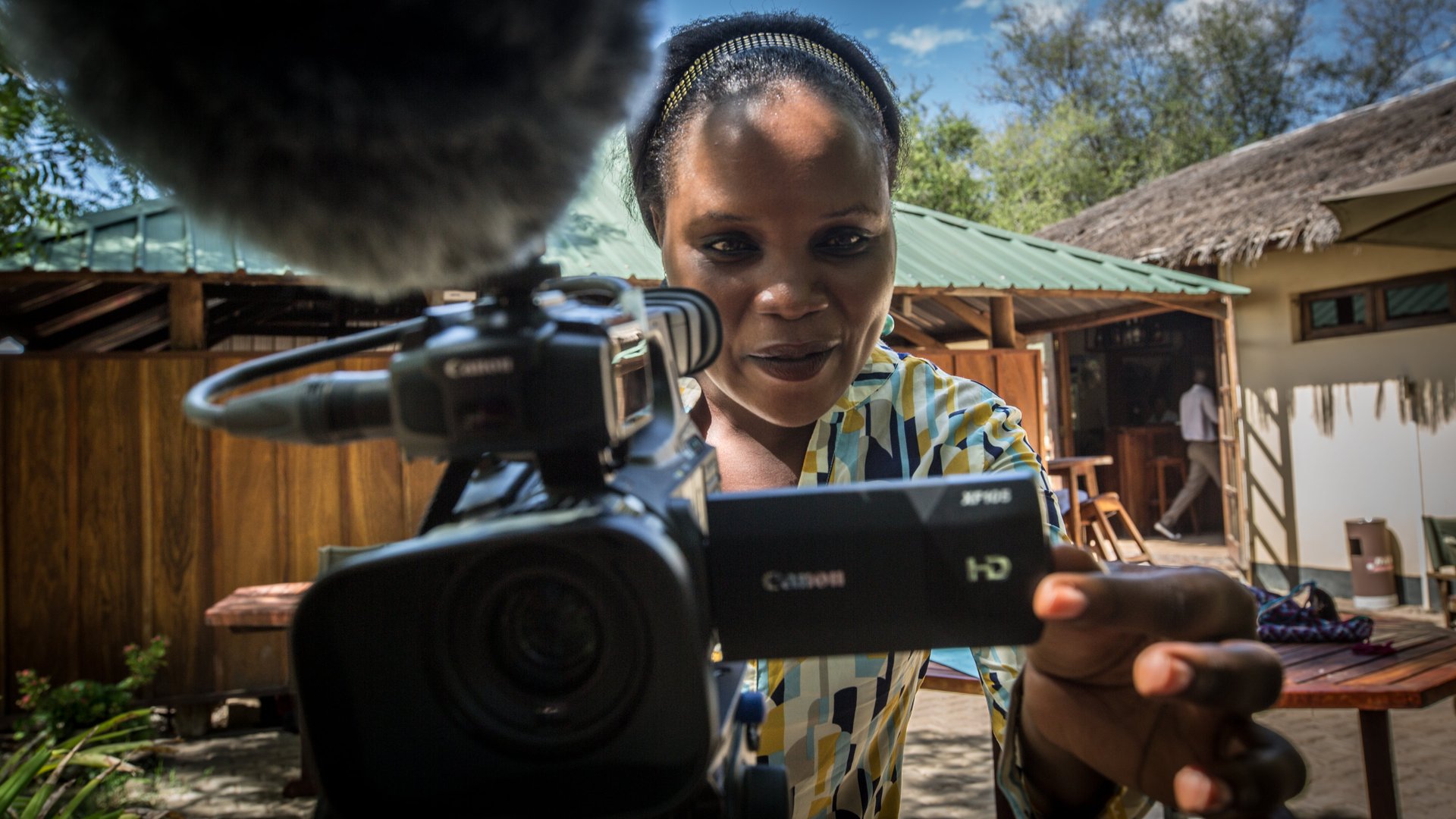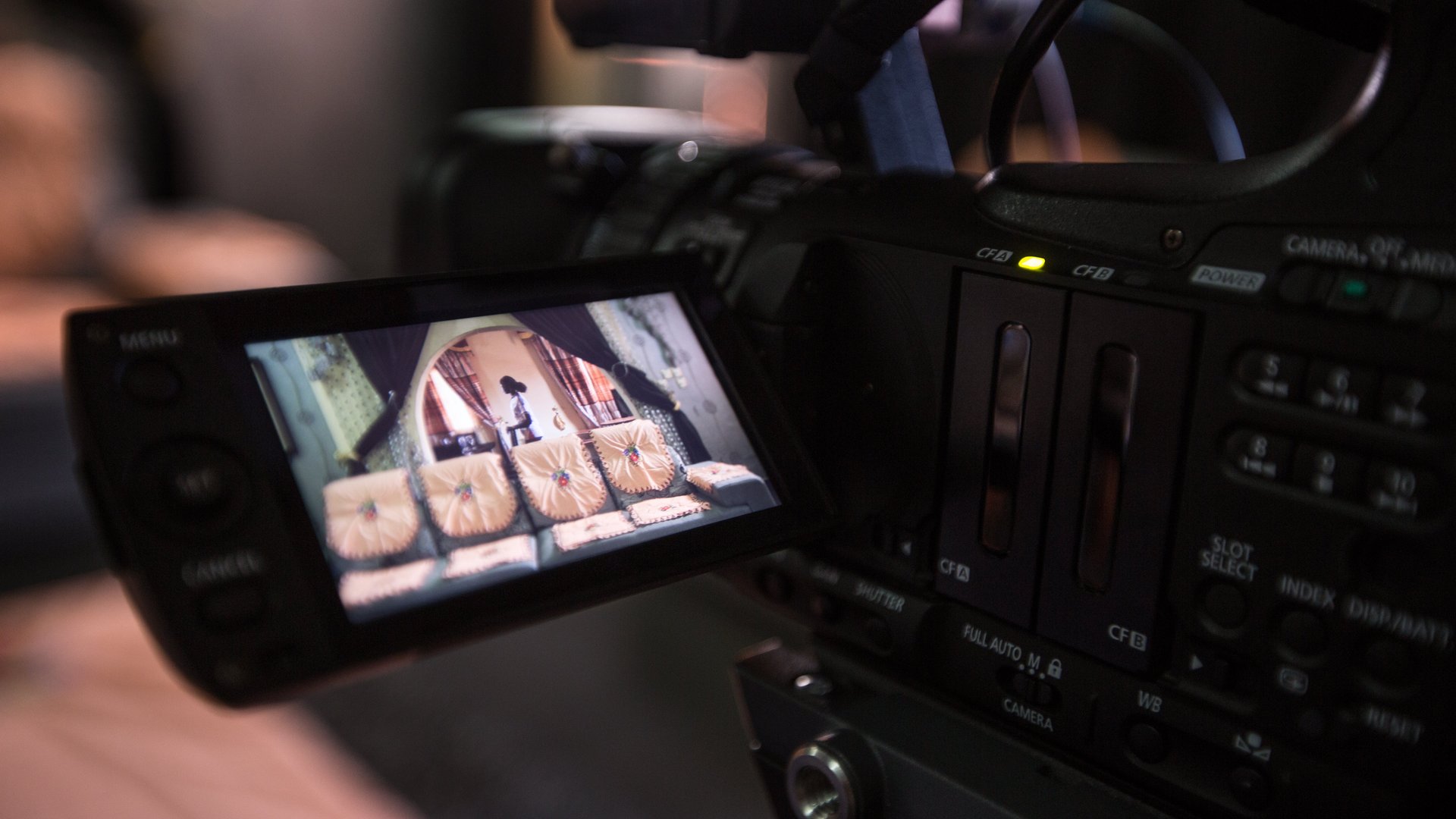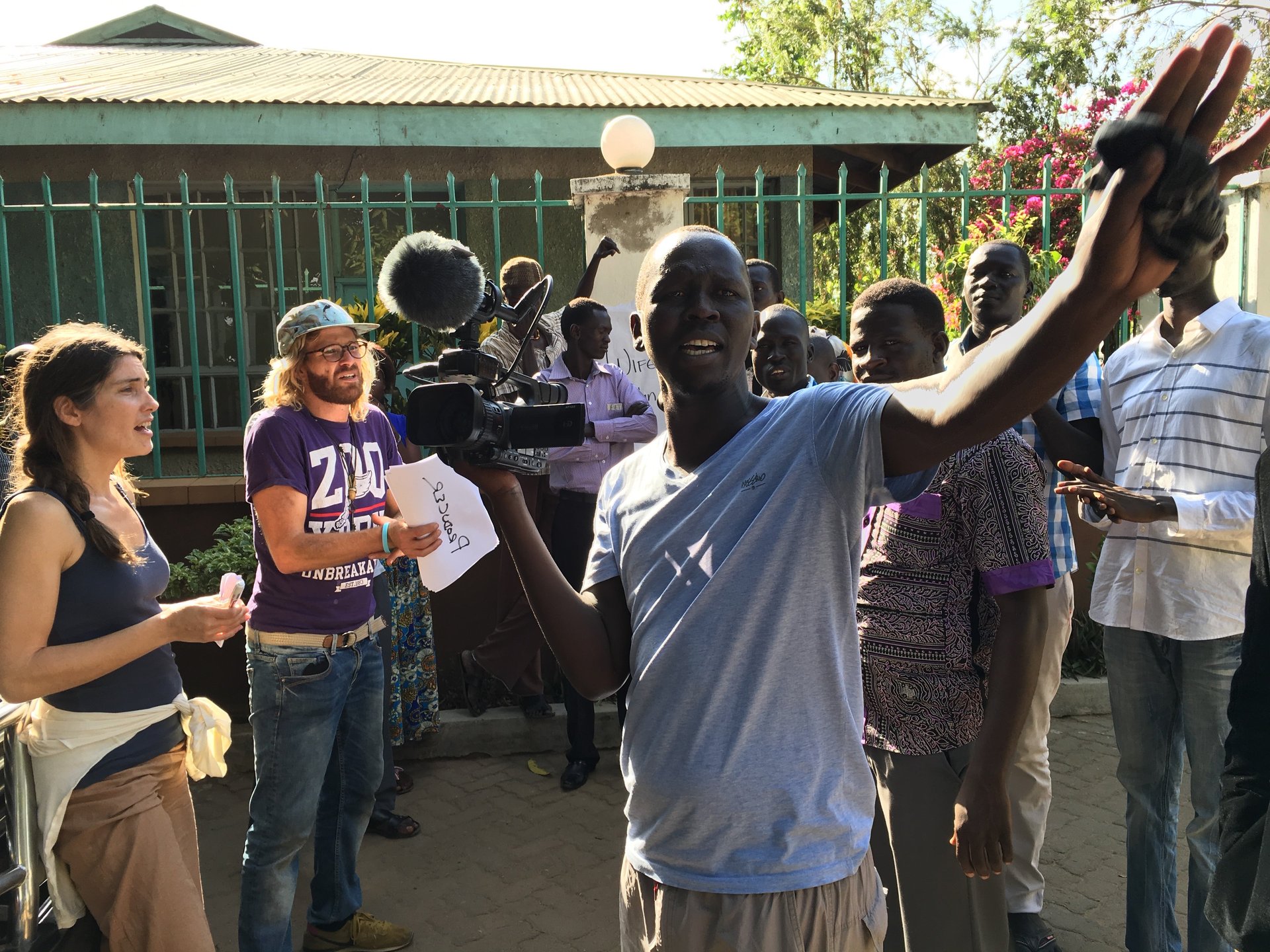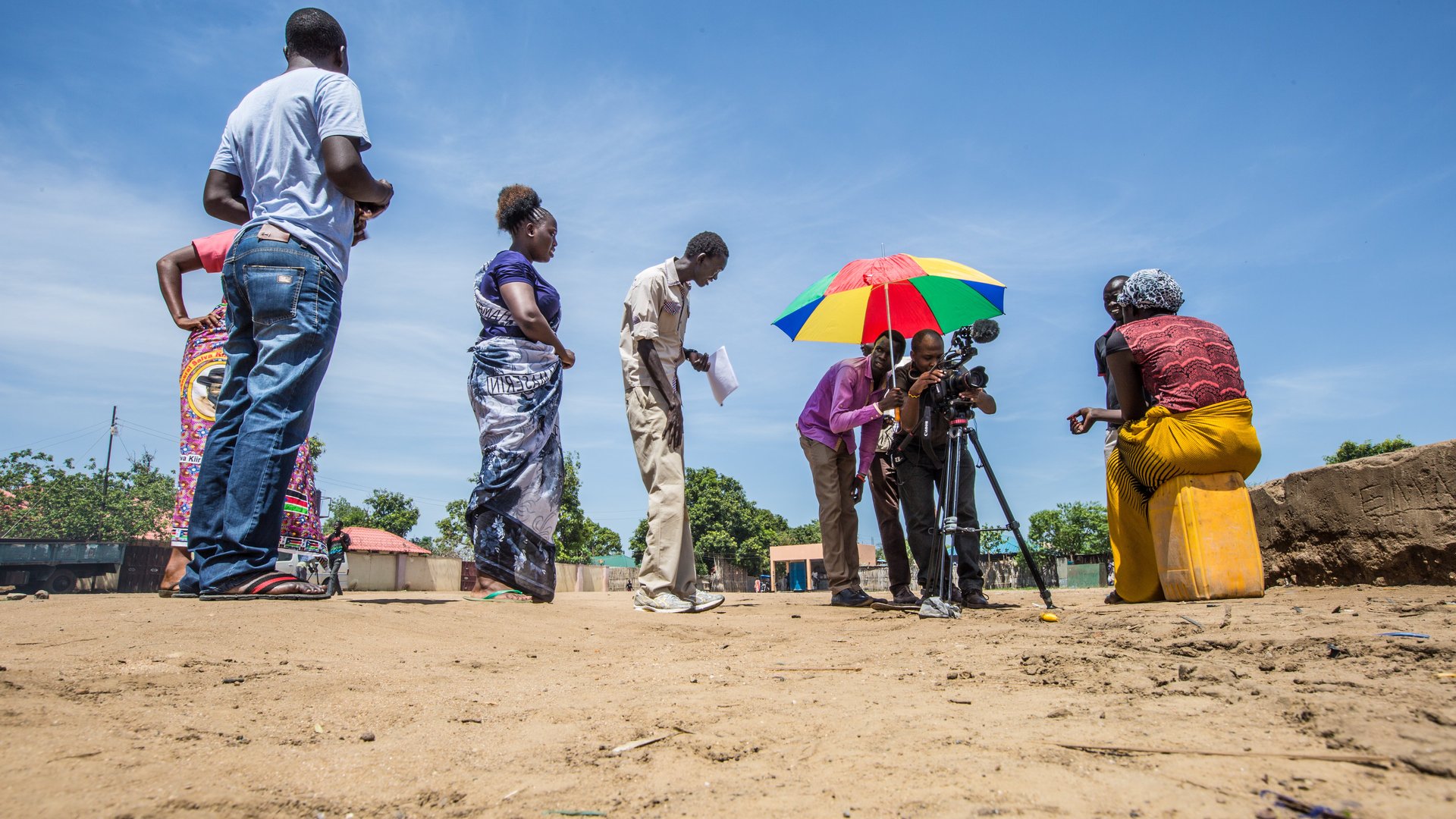“We’re not all warriors”: South Sudanese filmmakers are working to revamp their national image
There is not a single movie theater in South Sudan, the world’s newest nation. But that doesn’t mean the people of the war-riven country aren’t movie buffs.


There is not a single movie theater in South Sudan, the world’s newest nation. But that doesn’t mean the people of the war-riven country aren’t movie buffs.
In the absence of an organized local film-making industry, the “enormous appetite” for stories is satisfied by pirated Hollywood movies passed around on DVDs and USB sticks, Internews explains. But in the capital city, Juba, a gang of 20 merry South Sudanese filmmakers armed with cameras, boom microphones, and umbrellas are working to correct that.
The filmmakers are taking part in the Juba Film Festival, the country’s first ever festival of its kind. Working through torrential rains and the tense political climate, the filmmakers are racing to finish four movies in time for the festival’s culmination in July.
“There is a great need to tell our own stories,” says the festival’s founder, Simon “Bingo” Lokwang Paul, an orphaned refugee turned local TV personality. He described the festival as a kind of creative, peaceful revolt, to combat—or at least diversify—the pervasive stereotypes about the four-year old nation in the foreign press.

Instead of military coups, tribal factionalism and poverty, Bingo hopes to vivify stories about everyday life in the resource-rich east African country, traversed by the White Nile river. ”We are laughing people, we are determined people,” he says. “The war ruined things, but we’re not all killers and warriors.”
While there are a handful of famous South Sudanese citizens who have shown a different side of the country to the Western media—supermodel Alek Wek, NBA basketball players Luol Deng and the late Manut Bol, or its numerous statuesque beauty pageant contestants—they’re still characters operating within the story lines written by outsiders, not the people of the nation itself, explains Bingo.
Bingo, 31, first fell in love with movies as a teenager, watching outdoor screenings in the Kakuma Refugee Camp in northern Kenya. He picked up camera skills after a stint with the NGO FilmAid and later won a scholarship to pursue a film degree in Nairobi. When he graduated in 2009, he moved back to Juba, just as his homeland was pushing for independence from Sudan. He found a job at the South Sudan Television network as a video editor, and later developed the “Bingo Show,” a weekly program airing music videos.

The hope is that the academy and festival will jump-start a film industry in South Sudan. With support from donor agencies such as USAID, the local German embassy, and the guidance of professional mentors from New York-based Barefoot Workshops and guerrilla filmmakers What Took You So Long (WTYSL), Bingo designed the project as a kind of pop-up film school for young South Sudanese filmmakers. “There’s no infrastructure to learn about film here,” he explains.”The festival is really more than about showing movies, but the goal is to build capacity [to make them].”
The temporary “film academy” is set up in the Acacia Village Hotel, one of the film festival’s sponsors.

For the veteran filmmakers serving as mentors, witnessing the craft of movie-making in its pure form—minus complicated budgets and celebrities—is inspiring. “There is this growing pride and feeling that ‘we are enough to tell our own stories’ within the South Sudanese filmmaking community,” says the Swedish filmmaker and WTYSL founder Sebastian Lindström. “Having the chance to play a small part in this growth and unfolding—that’s magic!”
The crew has had to adapt its production schedules based on the shifting security situation—for example, when the former rebellion leader Riek Machar, South Sudan’s elected vice president, dramatically returned to Juba on Tuesday (April 26) and was finally sworn to office. Machar was a leader in the civil war that left over 50,000 people dead and 1.6 million displaced since December 2013, so many feared violence would erupt when he returned.
In the end, Machar’s arrival was tense but peaceful—and the film crew managed to wrap up a critical scene at a roadside water pump station just in the nick of time. ”It was 4 pm and we had to be back at 5 pm so that we could get the camera equipment moved into a safe space before the arrival of Machar,” Lindström says.
The Juba Film Festival culminates with screenings of the four movies and selected submissions on July 7, two days before the fifth anniversary of South Sudan’s independence.
